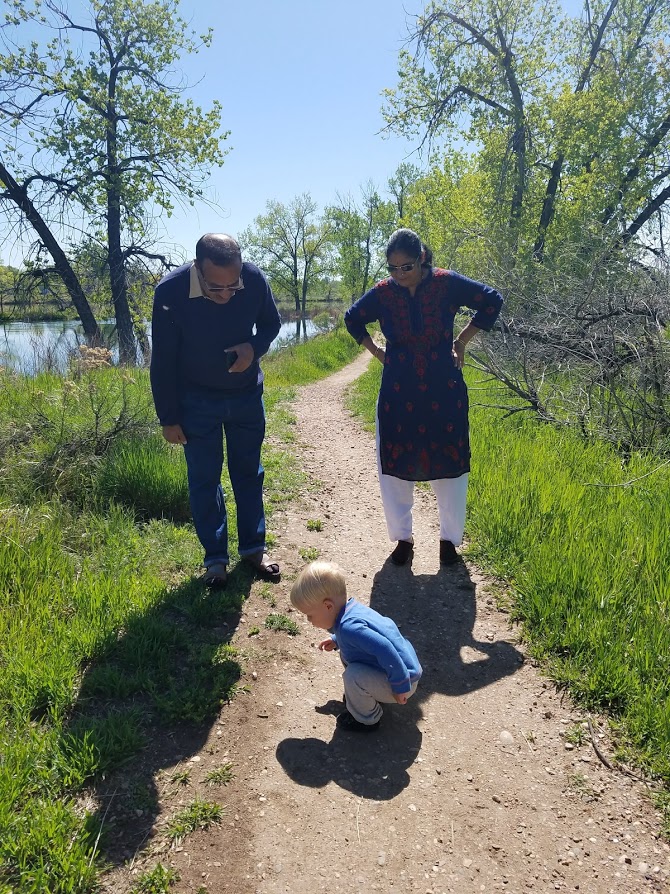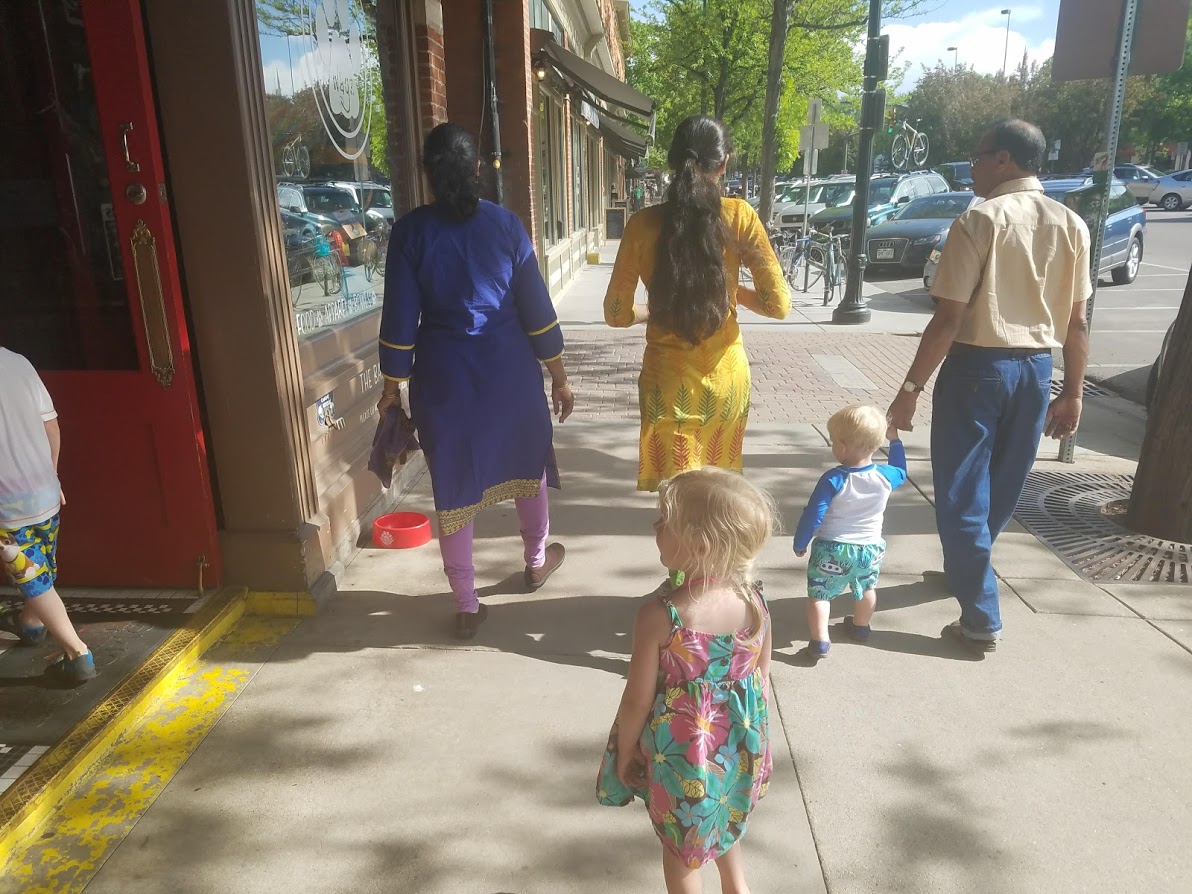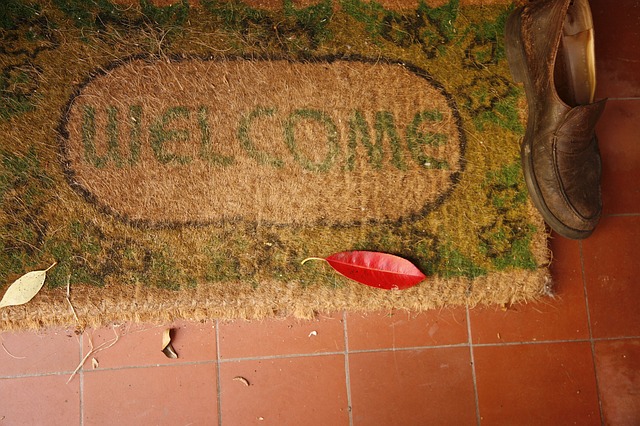
*By Anonymous
Asian cultures take hospitality very seriously. During our three years in southeast Asia, our local partners took care of us in countless, meaningful ways (tangible and intangible), from helping to find us housing (several times) to helping translate for us to feeding us and being our friends … the list truly is endless.
So when we learned that two of our friends from southeast Asia would be coming to the U.S. this spring as guests of honor at an fundraising event for big donors, we (and our former teammates) both asked the organization if they could come early to spend time with us on the west coast of the U.S.
While my husband and I had both been looking for work since the beginning of the year, neither of us had found jobs by the time our friends arrived from southeast Asia. We subconsciously aside that week to be fully be present with them. We were able to take them to the coast (one friend, 44 years old, had never seen the ocean), and the next day, we drove them halfway to meet up with our former teammates. It was the first time either of our southeast Asian friends had seen snow. We thought through meals and the people they would like to see while with us (contacts they had made from people who had visited southeast Asia on previous short-term teams). We gathered coats and warm gear since no matter how warm of a spring it was on the west coast of the U.S., we knew it would feel cold to them and I know our teammates did similarly during their stint together with them.
I don’t list these examples to pat ourselves on the back, but to reflect with a measure of awe at how far I’ve grown in my hospitality. There were a couple of times that we paid for meals, under the surface aware of our own unemployed status, and yet fully knowing the opportunities we had to bless our friends during that week paled in comparison to all they had carried us through for three years while we were guests in their country.
During that week we discussed hospitality with them off and on. Early on, the 27 year old’s father sent my husband a Facebook message in Burmese that basically said, “Please take good care of my son.” I imagine, like a good Asian would, my husband internalized the weight of that statement. After that, several times during the week, both friends commented on how well taken care of they both felt.
Toward the end of their time with us, one of the friends jokingly said, “Who will take care of us when we go to the fundraiser [that none of our team would be present at]?” I was starting to wonder the same thing…
Even though some of the organization’s staff would be there and had already met our southeast Asian friends, they had very limited overseas experience and I worried that they might not fully understand the ways that our friends would interpret “feeling cared for” over the weekend. I mentioned it to one of the event planners over the phone, and she said, “Oh, we’ll take care of them. We’ve got them covered. We won’t leave them all alone,” not in a dismissive way, but from a posture of genuine concern.
Overall, it sounded like our friends had a good time, but as I was messaging with the younger friend as he waited in the San Francisco airport to board his flight back over the ocean, he admitted, “There are no friends here like you taking care of us.”
Interestingly, one donor gifted this young man $2,000 to put towards his upcoming wedding. Coming from a country and economy such as his, this is an enormous blessing for this friend — it relieves a ton of pressure on him and his family, and helps with a master’s degree that he is working on. And yet his words confirmed my concerns that hospitality was not the strong suit for American Christians, even generous partners to the ministry.
As we continue in our own re-entry and transition back to life in the United States, my husband and I want to be intentional about continuing on with certain values we learned from our overseas living, not least of which is hospitality and the ability to be present with people.
We have so much to learn from one another, and sometimes it is as simple as sharing a meal or opening our home. If you find yourself worrying about the square footage of your space or whether you have what it takes to host someone from another culture, take a moment to consider what those from the majority world are accustomed to. Each one of us, the world over, just wants to know that we are welcome. That we belong. Surely, as Jesus-followers, we can offer that.
* The author of this piece asked to remain anonymous to protect the identity of the friends and organizations mentioned.
***

Our theme this month is “Hospitality Around the World.” Email me at scrapingraisins @ gmail (dot) com if you are interested in guest posting. Guest posts should be between 500 and 900 words. Be sure to include a headshot and bio. The theme for August is “Homelessness, Refugees & the Stranger,” so send me a post for that, too, if you have a good idea!
And if you’re not a writer, be sure to follow me on social media (links in upper right) to keep up with the latest blog post or sign up for my newsletter below for links to thought-provoking articles, a digest of blog posts, and a few things I’m into these days! xo

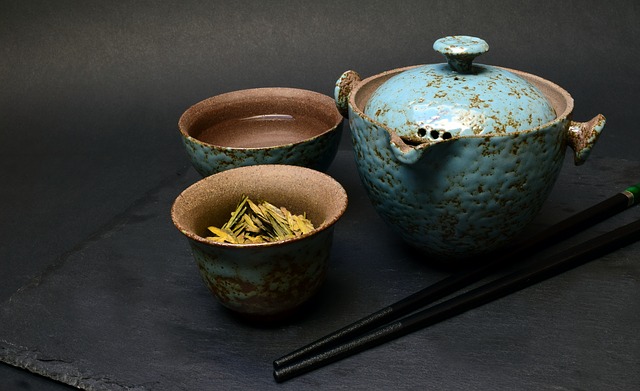
 As a mom, I juggle two different kinds of parenting — long-distance to our 3 adult kids (who are white on the outside but very Chinese on the inside) and our two adopted Chinese boys at home who have special needs. Since being back in the US, my husband has taken up cooking Chinese food, with a specialty of Lanzhou beef noodles (where we used to live and where our boys are from), giving us a taste of “home.” You can follow our story on my
As a mom, I juggle two different kinds of parenting — long-distance to our 3 adult kids (who are white on the outside but very Chinese on the inside) and our two adopted Chinese boys at home who have special needs. Since being back in the US, my husband has taken up cooking Chinese food, with a specialty of Lanzhou beef noodles (where we used to live and where our boys are from), giving us a taste of “home.” You can follow our story on my 
 Elizabeth Hinnant lives in Atlanta with her husband Neal and a corgi/shepherd diva pup named Heidi. She (Elizabeth, not the dog) writes about science, tech and chronic illness and sometimes tweets
Elizabeth Hinnant lives in Atlanta with her husband Neal and a corgi/shepherd diva pup named Heidi. She (Elizabeth, not the dog) writes about science, tech and chronic illness and sometimes tweets 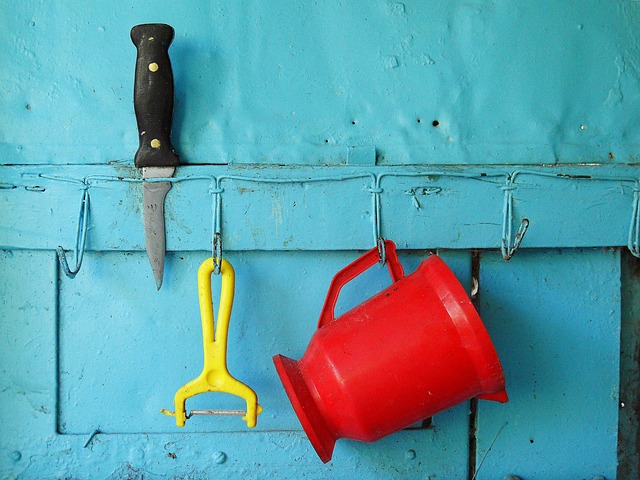
 Debbie loves, learns and lives in the East End of Glasgow, Scotland with her husband and two wee boys. People, food and stories are her favourites, preferably combined. She writes at
Debbie loves, learns and lives in the East End of Glasgow, Scotland with her husband and two wee boys. People, food and stories are her favourites, preferably combined. She writes at 
